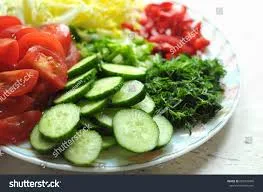British researchers said eating more protein may reduce seniors’ risk
of disability and help them remain independent longer. According to the
findings published recently in the ‘Journal of the American Geriatrics
Society,’ dietary protein slows the age-related loss of muscle mass,
helping to preserve the ability of senior citizens to do everyday tasks.
Good sources of protein include meat, fish, eggs, dairy products,
lentils and other beans, nuts and tofu. Tofu, also known as bean curd,
is a food prepared by coagulating soy milk and then pressing the
resulting curds into soft white blocks. Proteins, which are important
component of every cell in the body, are essential nutrients for the
human body.
Hair and nails are mostly made of protein and the body uses protein
to build and repair tissues. Similarly, proteins are used to make
enzymes, hormones, and other body chemicals. Protein is an important
building block of bones, muscles, cartilage, skin, and blood. Principal
author of the study, Nuno Mendonca, of Newcastle University, said: “Our
findings support current thinking about increasing the recommended daily
intake of protein to maintain active and healthy ageing.”
The researchers analysed data from more than 700 people in two United
Kingdom (UK) cities who turned 85 in 2006. More than one-quarter (28
per cent) had protein intakes below the recommended dietary allowance.
Following over five years of follow-up, the participants who ate more
protein at the study’s start were less likely to become disabled than
those who ate less protein, the study found. Older adults should eat
about one gram of protein for every 2.2 pounds of body weight, Mendonca
said, the Newsmaxhealth reported. That means someone weighing 160 pounds
would require about 58 grams of protein a day. A 3.5-ounce serving of
chicken contains about 31 grams of protein, he said.



























